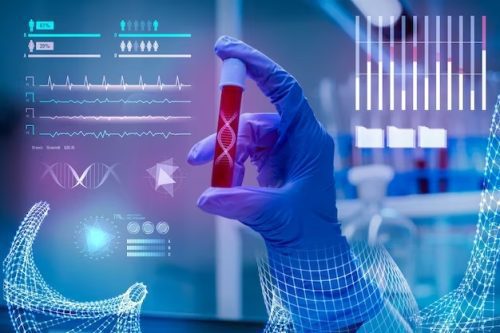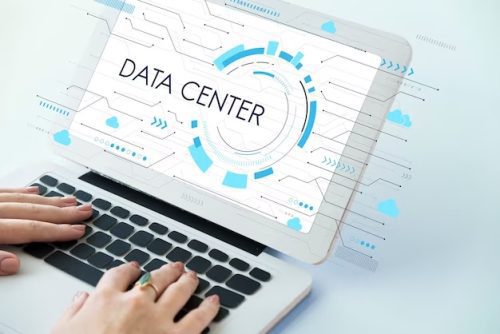Subscribe to Newsletter
Subscribe to Newsletter
Subscribe to Newsletter
Subscribe to Newsletter
Subscribe to Newsletter
Subscribe to Newsletter
Subscribe to Newsletter
Subscribe to Newsletter
Subscribe to Newsletter
Subscribe to Newsletter
Subscribe to Newsletter
Subscribe to Newsletter
Subscribe to Newsletter
Subscribe to Newsletter
Subscribe to Newsletter
Subscribe to Newsletter
Subscribe to Newsletter
Subscribe to Newsletter
Subscribe to Newsletter
Subscribe to Newsletter
Subscribe to Newsletter
Subscribe to Newsletter
Subscribe to Newsletter
Subscribe to Newsletter
Subscribe to Newsletter
Subscribe to Newsletter
Subscribe to Newsletter
Subscribe to Newsletter
Subscribe to Newsletter
Subscribe to Newsletter
Subscribe to Newsletter
Subscribe to Newsletter
Subscribe to Newsletter
Subscribe to Newsletter
Subscribe to Newsletter
Subscribe to Newsletter
Subscribe to Newsletter
Subscribe to Newsletter
Subscribe to Newsletter
Subscribe to Newsletter
Subscribe to Newsletter
Subscribe to Newsletter
Subscribe to Newsletter
Subscribe to Newsletter
Subscribe to Newsletter
Subscribe to Newsletter
Subscribe to Newsletter
Subscribe to Newsletter
Subscribe to Newsletter
Subscribe to Newsletter
Subscribe to Newsletter
Subscribe to Newsletter
Subscribe to Newsletter
Subscribe to Newsletter
Subscribe to Newsletter
Subscribe to Newsletter
Subscribe to Newsletter
Subscribe to Newsletter
Subscribe to Newsletter
Subscribe to Newsletter
Subscribe to Newsletter
Subscribe to Newsletter
Subscribe to Newsletter
Subscribe to Newsletter
Subscribe to Newsletter
Subscribe to Newsletter
Subscribe to Newsletter
Subscribe to Newsletter
Subscribe to Newsletter
Subscribe to Newsletter
Subscribe to Newsletter
Subscribe to Newsletter
Subscribe to Newsletter
Subscribe to Newsletter
Subscribe to Newsletter
Subscribe to Newsletter
Subscribe to Newsletter
Subscribe to Newsletter
Subscribe to Newsletter
Subscribe to Newsletter
Subscribe to Newsletter
Subscribe to Newsletter
Subscribe to Newsletter
Subscribe to Newsletter
Subscribe to Newsletter
Subscribe to Newsletter
Subscribe to Newsletter
Subscribe to Newsletter
Subscribe to Newsletter
Subscribe to Newsletter
Subscribe to Newsletter
Subscribe to Newsletter
Subscribe to Newsletter
Subscribe to Newsletter
Subscribe to Newsletter
Subscribe to Newsletter
Subscribe to Newsletter
Subscribe to Newsletter
Subscribe to Newsletter
Subscribe to Newsletter
Subscribe to Newsletter
Subscribe to Newsletter
Subscribe to Newsletter
Subscribe to Newsletter
Subscribe to Newsletter
Subscribe to Newsletter
Subscribe to Newsletter
Subscribe to Newsletter
Subscribe to Newsletter
Subscribe to Newsletter
Subscribe to Newsletter
Subscribe to Newsletter
Subscribe to Newsletter
Subscribe to Newsletter
Subscribe to Newsletter
Subscribe to Newsletter
Subscribe to Newsletter
Subscribe to Newsletter
Subscribe to Newsletter
Subscribe to Newsletter
Subscribe to Newsletter
Subscribe to Newsletter
Subscribe to Newsletter
Subscribe to Newsletter
Subscribe to Newsletter
Subscribe to Newsletter
Subscribe to Newsletter
Subscribe to Newsletter
Subscribe to Newsletter
Subscribe to Newsletter
Subscribe to Newsletter
Subscribe to Newsletter
Subscribe to Newsletter
Subscribe to Newsletter
Subscribe to Newsletter
Subscribe to Newsletter
Subscribe to Newsletter
Subscribe to Newsletter
Subscribe to Newsletter
Subscribe to Newsletter
Subscribe to Newsletter
Subscribe to Newsletter
Subscribe to Newsletter
Subscribe to Newsletter
Subscribe to Newsletter
Subscribe to Newsletter
Subscribe to Newsletter
Subscribe to Newsletter
Subscribe to Newsletter
Subscribe to Newsletter
Subscribe to Newsletter
Subscribe to Newsletter
Subscribe to Newsletter
Subscribe to Newsletter
Subscribe to Newsletter
Subscribe to Newsletter
Subscribe to Newsletter
Subscribe to Newsletter
Subscribe to Newsletter
Subscribe to Newsletter
Subscribe to Newsletter
Subscribe to Newsletter
Subscribe to Newsletter
Subscribe to Newsletter
Subscribe to Newsletter
Subscribe to Newsletter
Subscribe to Newsletter
Subscribe to Newsletter
Subscribe to Newsletter
Subscribe to Newsletter
Subscribe to Newsletter
Subscribe to Newsletter
Subscribe to Newsletter
Subscribe to Newsletter
Subscribe to Newsletter
Subscribe to Newsletter
Subscribe to Newsletter
Subscribe to Newsletter
Subscribe to Newsletter
Subscribe to Newsletter
Subscribe to Newsletter
Subscribe to Newsletter
Subscribe to Newsletter
Subscribe to Newsletter
Subscribe to Newsletter
Subscribe to Newsletter
Subscribe to Newsletter
Subscribe to Newsletter
Subscribe to Newsletter
Subscribe to Newsletter
Subscribe to Newsletter
Subscribe to Newsletter
Subscribe to Newsletter
Subscribe to Newsletter
Subscribe to Newsletter
Subscribe to Newsletter
Subscribe to Newsletter
Subscribe to Newsletter
Subscribe to Newsletter
Subscribe to Newsletter
Subscribe to Newsletter
Subscribe to Newsletter
Subscribe to Newsletter
Subscribe to Newsletter
Subscribe to Newsletter
Subscribe to Newsletter
Subscribe to Newsletter
Subscribe to Newsletter
Subscribe to Newsletter
Subscribe to Newsletter
Subscribe to Newsletter
Subscribe to Newsletter
Subscribe to Newsletter
Subscribe to Newsletter
Subscribe to Newsletter
Subscribe to Newsletter
Subscribe to Newsletter
Subscribe to Newsletter
Subscribe to Newsletter
Subscribe to Newsletter
Subscribe to Newsletter
Subscribe to Newsletter
Subscribe to Newsletter
Subscribe to Newsletter
Subscribe to Newsletter
Subscribe to Newsletter
Subscribe to Newsletter
Subscribe to Newsletter
Subscribe to Newsletter
Subscribe to Newsletter
Subscribe to Newsletter
Subscribe to Newsletter
Subscribe to Newsletter
Subscribe to Newsletter
Subscribe to Newsletter
Subscribe to Newsletter
Subscribe to Newsletter
Subscribe to Newsletter
Subscribe to Newsletter
Subscribe to Newsletter
Subscribe to Newsletter
Subscribe to Newsletter
Subscribe to Newsletter
Subscribe to Newsletter
Subscribe to Newsletter
Subscribe to Newsletter
Subscribe to Newsletter
Subscribe to Newsletter
Subscribe to Newsletter
Subscribe to Newsletter
Subscribe to Newsletter
Subscribe to Newsletter
Subscribe to Newsletter
Subscribe to Newsletter
Subscribe to Newsletter
Subscribe to Newsletter
Subscribe to Newsletter
Subscribe to Newsletter
Subscribe to Newsletter
Subscribe to Newsletter
Subscribe to Newsletter
Subscribe to Newsletter
Subscribe to Newsletter
Subscribe to Newsletter
Subscribe to Newsletter
Subscribe to Newsletter
Subscribe to Newsletter
Subscribe to Newsletter
Microarray Based Gene Expression Analysis using R Programming
Microarray, Data Analysis, R, Genomics, Differential Expression, Pathway Analysis, Clustering, Machine Learning, Data Preprocessing, Reproducibility.
Online/ e-LMS
Self Paced
Moderate
1 Month
About
The Microarray Data Analysis using R program offers a comprehensive exploration of microarray data analysis techniques within the context of genomics, with a strong focus on leveraging the R programming language. Participants will gain a deep understanding of fundamental concepts such as data preprocessing, differential expression analysis, clustering, pathway analysis, and machine learning. Through engaging presentations, real-world case studies, and expert insights, attendees will acquire the knowledge and skills needed to effectively analyze microarray data, making it a valuable learning opportunity for researchers, data analysts, and bioinformaticians in the genomics field.
Aim
The aim of the “Microarray Data Analysis using R” program is to equip participants with the practical skills and knowledge required to proficiently analyze microarray data using the R programming language, enabling them to uncover meaningful insights, identify differentially expressed genes, and effectively contribute to genomics research and data-driven decision-making in both academic and professional settings.
Program Objectives
- Develop R Proficiency: Enable participants to confidently use R for microarray data analysis, including data manipulation, statistical testing, and visualization.
- Comprehend Microarray Technology: Provide a solid understanding of microarray technology, its applications, and its role in genomics research.
- Master Data Preprocessing: Teach participants how to preprocess microarray data, covering normalization, quality control, and addressing data outliers.
- Identify Differentially Expressed Genes: Equip participants with the skills to identify and interpret differentially expressed genes or features in microarray datasets.
- Apply Statistical Analysis: Familiarize participants with statistical methods for hypothesis testing, p-value adjustments, and controlling for false positives in microarray analysis.
- Visualize Results Effectively: Instruct participants in creating informative plots and visualizations to communicate microarray data analysis outcomes.
- Conduct Pathway Analysis: Introduce tools and techniques for functional enrichment analysis and interpreting biological pathways related to gene expression changes.
- Explore Machine Learning: Cover machine learning approaches for classification, prediction, and feature selection using microarray data.
- Ensure Reproducibility: Stress the importance of documenting analysis workflows and adopting best practices for reproducible research.
- Promote Biological Interpretation: Encourage participants to interpret their findings within the context of biological systems, facilitating the extraction of meaningful insights from microarray data.
Program Structure
Day 1
- Introduction to Microarray data analysis workflow
- Obtaining microarray data from GEO and TCGA
- Understanding data formats
- Setting up R for data analysis
Day 2
- Data Normalization
- Differential Gene Expression Analysis
- Annotation of DEGs
- Pathway Analysis of DEGs
Day 3
- Heatmap Generation
- Volcano Plot Generation
- Survival analysis- Kaplan-Meier Plot
Installation Requirements
- Download the most recent versions of R and RStudio for your laptop:
Participant’s Eligibility
Graduates, Post Graduates, Research Scholars, Academicians, Industry Professionals of Biology, Genetics, Bioinformatics, Pharmaceutical and Biotech companies.
Program Outcomes
- Proficiency in R: Participants gain a strong foundation in R programming, allowing them to manipulate, visualize, and analyze microarray data efficiently.
- Understanding of Microarray Technology: Attendees develop a comprehensive understanding of microarray technology, including its principles, applications, and data generation processes.
- Data Preprocessing Expertise: Participants learn to clean and preprocess microarray data effectively, addressing issues such as normalization, quality control, and missing data.
- Differential Expression Analysis Skills: Participants can identify and interpret differentially expressed genes or features in microarray datasets, a critical skill in genomics research.
- Statistical Analysis Competence: Attendees become proficient in statistical methods for hypothesis testing, p-value corrections, and multiple testing adjustments related to microarray data.
- Data Visualization Capability: Participants acquire the ability to create informative plots and visualizations to communicate their microarray data analysis findings effectively.
- Pathway Analysis Proficiency: Attendees gain skills in functional enrichment analysis and the interpretation of biological pathways associated with gene expression changes.
- Machine Learning Application: Participants learn how to apply machine learning techniques for classification, prediction, and feature selection using microarray data.
- Reproducibility Emphasis: Attendees understand the importance of reproducibility and adopt best practices for documenting and sharing their analysis workflows.
- Biological Interpretation Skills: Participants can interpret analysis results within the context of biological systems, extracting meaningful insights from microarray data.
Fee Structure
Standard Fee: INR 4,998 USD 110
Discounted Fee: INR 2499 USD 55
We are excited to announce that we now accept payments in over 20 global currencies, in addition to USD. Check out our list to see if your preferred currency is supported. Enjoy the convenience and flexibility of paying in your local currency!
List of CurrenciesBatches
Certificate
Program Assessment
Certification to this program will be based on the evaluation of following assignment (s)/ examinations:
| Exam | Weightage |
|---|---|
| Mid Term Assignments | 50 % |
| Project Report Submission (Includes Mandatory Paper Publication) | 50 % |
To study the printed/online course material, submit and clear, the mid term assignments, project work/research study (in completion of project work/research study, a final report must be submitted) and the online examination, you are allotted a 1-month period. You will be awarded a certificate, only after successful completion/ and clearance of all the aforesaid assignment(s) and examinations.
Program Deliverables
- Access to e-LMS
- Real Time Project for Dissertation
- Project Guidance
- Paper Publication Opportunity
- Self Assessment
- Final Examination
- e-Certification
- e-Marksheet
Current Participants* Analytics
Country
Profession
Affiliation
Note: The information shown in the above-mentioned analytics is live and may include information that is not completely correct like spelling mistakes, grammatical mistakes , factual errors or even mis representation as this is what participants have entered, the information is currently not edited and or filtered , but at later stages they will be filtered to provide true data representation.
Enter the Hall of Fame!
Take your research to the next level!
Achieve excellence and solidify your reputation among the elite!
Related Courses

Artificial Intelligence for …

AI Applications in Pharmacy: …

SQL & Power BI Program: …

Data Visualization using …
Recent Feedbacks In Other Workshops
The course was more theoretical than practical.
nothing

